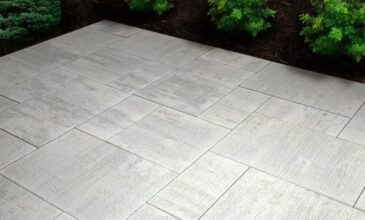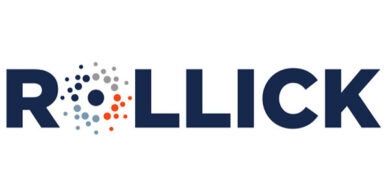The Numbers Tell the Story
Are you winning, losing or just surviving?
By Jeff Sheets
If you’re a typical OPE dealership owner, you likely have the confidence, intelligence and ambition to implement and execute your plans. All of those skills are essential, but one more may be even more essential. The problem is, this one critical skill often gets the least attention. So what is this all-important skill? Having a total understanding of the numbers that make your business a success!
Business owners are generally focused and driven people. They’re focused on the next sale or the next business decision, yet when asked what last month’s revenues were, or what their expenses are versus what was planned, they may only have a foggy idea at best. Even though the financial numbers are the tools that help you see whether you are winning or need to make adjustments, sometimes you may neglect them at your own peril. I’ll break this down by three areas: service, parts and wholegoods.
#1 Service Department
Technician efficiency is at the top of the list. Your technicians should be billing as close to 100 percent of their time as possible. I would consider 50 percent or less a failing grade. Wait time for equipment should be less than 2 weeks all year long. Anything more than that would be below average. Three weeks or more would be an “F” for sure. You must remember that the longer you take to repair a mower, the longer your customers’ grass grows before they can mow it, or they may need to pay others to mow it. You must also be very cautious of returned equipment that was repaired by technicians. Sometimes in trying to make numbers, technicians can miss obvious items that need to be taken care of. If you notice a technician is experiencing problems with missing or making obvious repairs, having a quality inspection before returning equipment to customers should be mandatory. Obviously, if the problems persist, then you may need to find a technician who can be more efficient.
#2 Parts Department
Your gross margin on parts is an important number to know. I consider 50 percent or greater to be an A and 35 percent or less to be a D or F. You must strive to make as much profit as possible in your parts department. If you have the part on hand, you deserve a premium for that part because there is no wait time for it.
Another important number to know is inventory turns. Anything less than 2 turns highlights major problems in your inventory. Anything above 2 turns is above average. I would consider 4 turns of your inventory to be a great goal. Anything above that is definitely an A+. You must make sure that you have the right inventory to achieve inventory turns of 4 or more. You cannot afford to have non-turning inventory sitting on your shelves. If you have a problem, you need to think about writing off that inventory and either selling it at a loss or holding it out of current inventory for someone who might want it at some point. When you have the opportunity to return parts to the manufacturer, you need to take advantage of it to make sure that you are getting rid of these under-performing parts. If you do not have a part and someone decides to go elsewhere to buy it, you need to note that in your system. This could be showing you the need to have a deeper inventory in that particular part. If you see 5 or more of these a month, especially multiple situations like this with the same part, you may need to make adjustments. Today, you do have the luxury of getting parts fairly quickly if you have a out-of-stock situation, but you should avoid this as much as possible.
A final number that needs to be looked at in the parts department is customer wait time. Strive to process all parts transactions as quickly as possible. Having long lines is not a badge of honor. If you see wait times of 5 minutes or more, then you need additional staff to jump in and reduce that time. Having parts located very closely to the counter is extremely important to shortening this time.
#3 Wholegoods
As with the parts department, gross margin is a great barometer as to how you are doing with regard to profit. I have seen lines of equipment vary in gross margin from 7 percent to 20 percent or more. That is the scale that I would use to grade from poor to excellent. When looking at a 1-percent increase in gross margin, you can generate an extra $1,000 with every $100,000 in sales. A 2-percent increase in $500,000 in equipment sales could mean an extra $10,000 in profit to use for your business to either reward yourself or others. Inventory is important in this area too because most dealers will have to pay finance charges on equipment that does not sell. Your goal should always be to not carry over equipment that you might have to pay on because that effectively takes away most of the profit you have in it. You should be noting when this is due to occur and get rid of this inventory any way possible before it does occur. You need to make sure that each line of wholegoods pays for its space in your showroom. Whatever space you are allotting it in square feet should be divided into the sales for that line to see what dollar amount per square foot it is producing. I am in favor of each product line being analyzed against each other, and the least-performing line being evaluated for being reduced or replaced.
I know that talking about numbers is not always an exciting topic, but avoiding looking at them can be the peril of the business. I like the following quote from Tilman Fertitta, chairman, CEO and sole owner of Landry’s, Inc., as well as the star of the Billion Dollar Buyer reality TV show: “Don’t ever let your business get ahead of the financial side of your business. Accounting, accounting, accounting. Know your numbers.” I also like the old saying that knowledge is power and having a grasp on where you are at least monthly makes sense. If you notice that your numbers are not meeting expectations, you always have the chance to make changes. Don’t just blindly think you are doing well and find out later that you are not. Being in business for the long haul means knowing where you are at any given point in your year. Keep tracking your numbers, and you will give yourself a chance to be the best business possible.
 Jeff Sheets is the founder and owner of OPE Consulting Services. Whether a business is thriving or struggling to survive, Sheets’ rich experience in both the corporate and not-for-profit sectors allows him to partner with business owners to customize unique strategies for their needs. For the past 11 years, he has worked extensively with hundreds of outdoor power equipment dealers to create best practices in business structure, personnel management and financial profitability. For more information, he may be contacted at opeconsultingservices@gmail.com or (816) 260-5430. You can also follow him on Twitter @opeconsult, connect with him on LinkedIn, and visit his website at www.opeconsultingservices.com.
Jeff Sheets is the founder and owner of OPE Consulting Services. Whether a business is thriving or struggling to survive, Sheets’ rich experience in both the corporate and not-for-profit sectors allows him to partner with business owners to customize unique strategies for their needs. For the past 11 years, he has worked extensively with hundreds of outdoor power equipment dealers to create best practices in business structure, personnel management and financial profitability. For more information, he may be contacted at opeconsultingservices@gmail.com or (816) 260-5430. You can also follow him on Twitter @opeconsult, connect with him on LinkedIn, and visit his website at www.opeconsultingservices.com.


